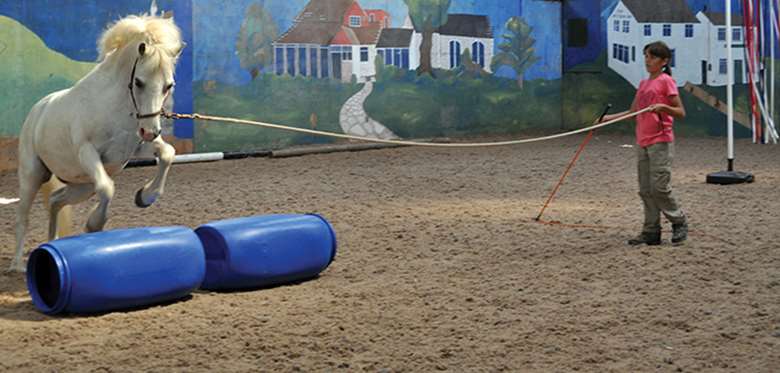How horses help children to focus
Emily Rogers
Tuesday, September 26, 2017
Course improves emotional regulation and thinking skills for eight- to 24-year-olds where talk-based support is not working.

PROJECT
TheHorseCourse ReStart
FUNDING
Around £750 per participant, from referring agencies and charitable trusts
BACKGROUND
TheHorseCourse was developed by Dorset horsewoman Harriet Laurie, inspired by Parelli Natural Horsemanship, a US behavioural psychology-based horse-training programme. She saw its potential for helping children and adults with difficulties after seeing others who learned the approach become calmer, more focused and able to communicate more clearly. A pilot involving eight violent offenders at Portland Prison in Dorset in 2010 saw a 74 per cent decrease in adjudications - prison disciplinary procedures. Laurie went on to establish TheHorseCourse charity in 2011. The charity's ReStart course has since helped around 500 people, mostly under-25s.
ACTION
ReStart is a two-hour per day, Monday to Friday course at TheHorseCourse's Weymouth headquarters, or approved independent centres in Wiltshire, Surrey, Gloucester and London. Laurie describes most young participants as "fidgety and impulsive, or shut down". They are referred by professionals including teachers, social workers, mental health or youth offending staff.
Facilitators work one-to-one with participants, setting non-riding tasks such as getting the horse to kick a ball through a goal and weaving through cones shoulder-to-shoulder with the animal without words, keeping its rope slack. "If you have the right focus and energy for the speed you want to go at, the horse will stick to you," explains Laurie. "But if you're distracted, it won't know where to go. Horses give very clear feedback." After each task, facilitators help participants return to "neutral" which Laurie describes as "total calmness in mind, body and emotion". Tasks get harder and by the end, there is no rope.
Progress is measured through TheHorseCouse Star, tracking development in engagement; responsibility, calmness; assertiveness; realistic analysis and planning; focus and perseverance; empathy; and communication and language. On the final day, facilitator and participant reflect on progress towards the star's eight points.
OUTCOME
Bournemouth University analysis of data from referrers for 126 participants from 2014 and 2016 shows 81 per cent showing improvements across all eight skills two months after ReStart by an average of 10.4 points within a 32-point scale.
Referrers say 80 per cent of participants improve relationships, behaviour, self-belief, and engagement with education, training or work.




